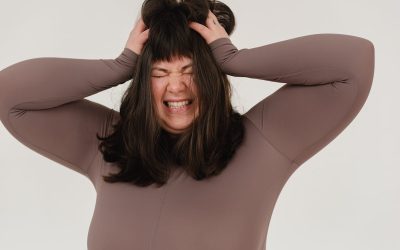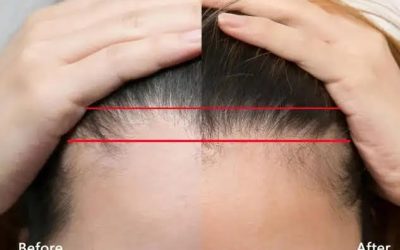The thought of hair loss scares most men and they have legitimate reasons to feel this way. For one, alopecia in men may result in balding. What’s more is that they tend to lose their hair earlier as compared to women. Some men in their 20s have visible signs of hair loss.
Simply put, it is perfectly understandable why you’d worry if you are noticing that your hairline is receding or if you are developing a bald spot. But please do not worry too much as this can exacerbate the problem (in case you really are suffering from alopecia). What you should do instead is see a hair and scalp specialist.
The specialist can do tests to diagnose your condition as well as identify what’s causing it. Your dermatologist needs to know why you are losing hair so that she can come up with the best treatment plan for you.
Hair loss in men, just like in women, has various causes. Read on to learn about the possible reasons why you’re losing hair.
Genetics
The leading cause of hair loss in men is a hereditary condition called male pattern baldness.
“Reports indicate that 95% of hair loss in males may be attributed to male pattern baldness. Also referred to as androgenetic alopecia, this condition is said to be more common among white males. Moreover, its prevalence increases with age. It affects 35% of men aged 35 and 80% of white men before they turn 70.”
This condition is the reason behind the U-shaped patch of hair in men. The hair loss happens gradually which is why it can be difficult to notice it immediately.
“The first signs of male pattern baldness is hair thinning along the forehead and temples… Over time, when the hair loss is not discovered and treated right away, the hair line recedes and forms an M shape. For some, the M shape is replaced by U as the hair loss progresses. However, at this stage, hair loss is already quite advanced.”
Male pattern baldness has no cure. However, there are medications which can prevent it from progressing rapidly. In some cases, hair transplant is recommended.
Aging
Hair loss is one of the consequences of growing old. Just like other body parts, hair follicles deteriorate over time.
They get smaller and smaller as you get older. Consequently, when they shrink, they produce fine hairs which can be difficult to see. This is usually the case in bald people. It may seem that they have zero hair but they actually still have some (but they aren’t visible).
Just like androgenetic alopecia, age-related hair loss is not curable or reversible but medications can slow it down.
Skin and Scalp Conditions
Having certain skin or scalp conditions can cause your hair to fall off. Dandruff or seborrheic dermatitis is a good example here.
“Studies reveal that the rate of hair shedding is high in people who have flaky scalps or dandruff.”
Let’s be clear:
These scalp conditions do not directly cause hair loss. The culprit is actually the scratching that you do to relieve the itchiness. The scratching can injure the follicles, causing them to produce less hair or none at all.
Fortunately, alopecia due to skin disease is reversible. Once the condition is cured, hair loss stops.
Lifestyle
Your diet impacts the health of your locks. Basically, you need to have healthy meals to ensure that you do not suffer from nutritional or vitamin deficiencies.
“Eat food rich in iron, vitamin E, vitamin B12 and zinc. These vitamins and minerals help invigorate thinning strands and keep your hair in tip-top condition. It is also essential to eat protein-rich food. Protein helps keep hair strong. It is also essential to your hair’s growth.”
Aside from your diet, your hairstyle can also cause your hair to fall. If you regularly sport tight hairstyles like man buns and cornrows, you may suffer from a hair loss condition called traction alopecia.
“Always wearing your hair in these styles can put excessive tension on your locks and result in the repeated pulling of strands from the follicles.”
Hair loss due to traction alopecia is not permanent. You can reverse the effect of this condition simply by changing hairstyles or not tying your hair.
Remember, treatment cannot commence if the cause of your hair loss is not identified. So, if you suspect you are suffering from hair loss, see your dermatologist right away so she can diagnose your condition.
Want to get more information about hair loss in men? Call us today at (0)1 6793618 and schedule an appointment with our specialist!
—



